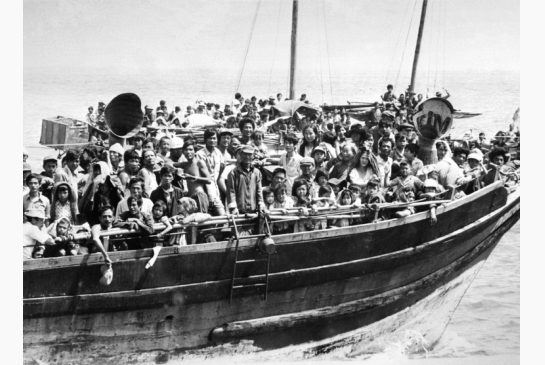 On January 27, 1945, the Auschwitz concentration camp was liberated from Nazi control. This is why we honor that date. We remember, because we promised to "never forget." We promised to never forget how hatred, xenophobia, and religious fear led to millions of deaths. We promised to never forget how own own fear let us turn blind eye to a crisis situation.
On January 27, 1945, the Auschwitz concentration camp was liberated from Nazi control. This is why we honor that date. We remember, because we promised to "never forget." We promised to never forget how hatred, xenophobia, and religious fear led to millions of deaths. We promised to never forget how own own fear let us turn blind eye to a crisis situation.On January 27, 2017, the 45th US president callously signed his Executive Order "Protecting the Nation from Foreign Terrorist Entry into the United States." It's rules would not have impacted the 9/11 attackers, nor the San Bernardino shooters, nor the Orlando night club shooter, nor the Boston marathon bombers. And certainly not the terrorists Dylan Roof, Adam Lanza, James Holmes, Charles Roberts, Michael McLendon, Eric Harris or Dylan Klebold.
The nearly 200 legally-entering travelers that were detained in airports, having taken off before the order was signed. The estimated 13,000 Syrian refugees who had hoped find refuge in 2017. The 60,000 refugees from anywhere that are now no longer allowed to enter the USA due to a reduced cap. The 84,000 people with legal visas from the seven banned countries that are now no longer allowed to travel. And potentially hundreds of thousands of green card holders, who have overcome tremendous screenings and hurdles to make the United States their permanent home.

Each of these numbers represent people, families, jobs, communities. It also means loss of revenue, national productivity, scholarship. With the order potentially impinging upon over 100 employees of Google, the company recalled all of its affected traveling personnel to the US. Microsoft warned its shareholders of the potential financial impact. The order was condemned by 20 Nobel laureates, and thousands of academics.
This ban targets the absolute most vulnerable of our world (ahem, "the least of these"). In Syria, over 450,000 have died, and another 11 million have been displaced. And those numbers continue to grow. We are in the middle of a crisis. It rivals other infamous international tragedies like the Sudanese Civil War and the Rwandan Genocide. We have a chance to learn from our regrets over these events. Will we?
Generally, I dismiss Hitler comparisons. They're typically alarmist and exaggerated. And yet as I listen to the rhetoric, as I watch the news, the parallels are striking. True we have not reached the proportions, but why would we wait until it reaches that point to sound the alarm? Why hold our compassion until after we learn the full extent of the damage, as seems to be our habit.
no one leaves home unless
home is the mouth of a shark
you only run for the border
when you see the whole city running as well
....
you have to understand,
that no one puts their children in a boat
unless the water is safer than the land
(read the full poem here)

Scripture tells us that "when a stranger sojourns with you in your land, you shall not do him wrong. You shall treat the stranger who sojourns with you as the native among you, and you shall love him as yourself" (Leviticus 19:33-34). And we are warned "I will be swift... against those who thrust aside the sojourners, and do not fear me" (Malachi 3:5)
While it's been stated more than once on this blog, it bears repeating: our faith is founded on the shoulders of refugees immigrating to strange lands. As a teenager, Joseph narrowly escaped death, forcibly leaving his parents to live in a foreign country. Moses's mother sent him down the river in a basket to escape imminent death. David spends much of his life fleeing those trying to destroy him. And Jesus himself was a child forced escape violence and oppression by becoming a refugee in a foreign country.

We are afraid of what will happen if we offer our welcome. But perhaps we should be more afraid of what happens to us if we won't.
-----------------
For I was hungry and you said,
"Drug test those who would ask for food."
I was thirsty and you said,
“Oil for us is more important than water for them. Build the pipeline.”
I was a stranger and you said,
“He could be a terrorist. Don’t let him in.”
I was sick and you said, “Take away her health insurance.”
I was in prison and you said,
“Those people disgust me. We should bring back the death penalty.”
Truly I tell you, whatever you did to one of the least of these, you did to me.
Matthew 25:35-36 (Author Unknown)
No comments:
Post a Comment